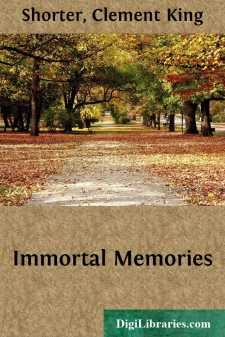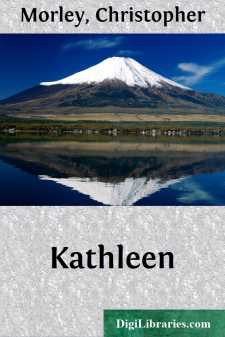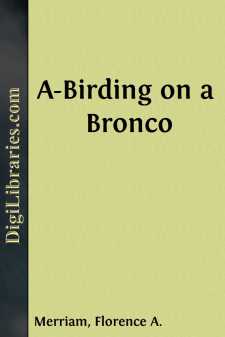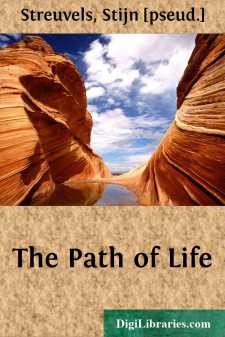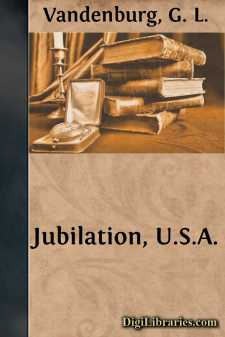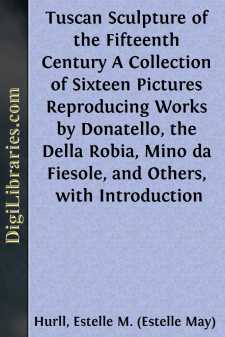Categories
- Antiques & Collectibles 13
- Architecture 36
- Art 48
- Bibles 22
- Biography & Autobiography 813
- Body, Mind & Spirit 142
- Business & Economics 28
- Children's Books 17
- Children's Fiction 14
- Computers 4
- Cooking 94
- Crafts & Hobbies 4
- Drama 346
- Education 46
- Family & Relationships 57
- Fiction 11829
- Games 19
- Gardening 17
- Health & Fitness 34
- History 1377
- House & Home 1
- Humor 147
- Juvenile Fiction 1873
- Juvenile Nonfiction 202
- Language Arts & Disciplines 88
- Law 16
- Literary Collections 686
- Literary Criticism 179
- Mathematics 13
- Medical 41
- Music 40
- Nature 179
- Non-Classifiable 1768
- Performing Arts 7
- Periodicals 1453
- Philosophy 64
- Photography 2
- Poetry 896
- Political Science 203
- Psychology 42
- Reference 154
- Religion 513
- Science 126
- Self-Help 84
- Social Science 81
- Sports & Recreation 34
- Study Aids 3
- Technology & Engineering 59
- Transportation 23
- Travel 463
- True Crime 29
Sort by:
PREFATORY The following addresses were delivered at the request of various literary societies and commemorative committees. They amused me to write, and they apparently interested the audiences for which they were primarily intended. Perhaps they do not bear an appearance in print. But they are not for my brother-journalists to read nor for the judicious men of letters. I prefer to think that...
more...
KATHLEEN I The Scorpions were to meet at eight o'clock and before that hour Kenneth Forbes had to finish the first chapter of a serial story. The literary society, named in accordance with the grotesque whim of Oxford undergraduates, consisted of eight members, and it was proposed that each one should contribute a chapter. Forbes was of a fertile wit, and he had been nominated the first operator....
more...
OUR VALLEY."Climb the mountain back of the house and you can see the Pacific," the ranchman told me with a gleam in his eye; and later, when I had done that, from the top of a peak at the foot of the valley he pointed out the distant blue mountains of Mexico. Then he gave me his daughter's saddle horse to use as long as I was his guest, that I might explore the valley and study its birds to...
more...
In introducing this new writer to the English-speaking public, I may be permitted to give a few particulars of himself and his life. Stijn Streuvels is accepted not only in Belgium, but also in Holland as the most distinguished Low-Dutch author of our time: his vogue, in fact, is even greater in the North Netherlands than in the southern kingdom. And I will go further and say that I know no greater...
more...
WHICH DESCRIBES THE JOURNEY OF SAMSON HENRY TRAYLOR AND HIS WIFE AND THEIR TWO CHILDREN AND THEIR DOG SAMBO THROUGH THE ADIRONDACK WILDERNESS IN 1831 ON THEIR WAY TO THE LAND OF PLENTY, AND ESPECIALLY THEIR ADVENTURES IN BEAR VALLEY AND NO SANTA CLAUS LAND. FURTHERMORE, IT DESCRIBES THE SOAPING OF THE BRIMSTEADS AND THE CAPTURE OF THE VEILED BEAR. In the early summer of 1831 Samson Traylor and his...
more...
by:
G. L. Vandenburg
You've heard, I'm sure, about the two Martians who went into a bar, saw a jukebox flashing and glittering, and said to it, "What's a nice girl like you doing in a joint like this?" Well, here's one about two Capellans and a slot-machine....TORYL pointed the small crypterpreter toward the wooden, horseshoe-shaped sign. The sign's legend was carved in bright yellow...
more...
Down at my feet on the red tiles in front of a roaring great fire sit a great black cat and a soft white Angora pussy. They are named Ebony and Snowball and are as different in nature as they are in colour, but are devoted friends for all that. Possibly because of it! for where Snowball is timid, Ebony will bravely lead the way; while if Ebony is cross, Snowball will purr and coax and cuddle until he...
more...
"The Italian sculptors of the earlier half of the fifteenth century are more than mere forerunners of the great masters of its close, and often reach perfection within the narrow limits which they chose to impose on their work. Their sculpture shares with the paintings of Botticelli and the churches of Brunelleschi that profound expressiveness, that intimate impress of an indwelling soul, which is...
more...
by:
F. M. S.
THE PICTURE. H, Madge, just stay as you are; there—your head a little more turned this way.""But, Raymond, I can't possibly make the toast if I do." "Never mind the toast; I shan't be many minutes," said the boy who was painting in the window, while he mixed some colours in an excited, eager manner. "The fire is very hot. Mayn't I move just to one side?"...
more...
by:
John Berryman
What do you hate and fear the most? I know a girl who gags and throws up at the mere sight of a bird. Poor kid, when she was a barefoot moppet she stepped on a fledgling robin in the grass. She hasn't gotten over the squish of it yet. Birds don't trouble me. I can look at them all day. It takes snakes to give me the green shudders. I hate them. She was getting better at them, I decided. This...
more...


